-
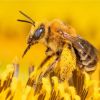 +41 +7
+41 +760% of Earth's Food Crops Aren't Being Visited by Enough Pollinators
Some of our favorite food crops around the world aren't reaching their full potential because of fewer visits from the insects that pollinate them, a new study has found.
-
 +2 +1
+2 +1How To Make 17th Century Clotted Cream - A History
-
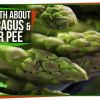 +2 +1
+2 +1The Truth About Asparagus and Your Pee
-
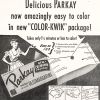 +2 +1
+2 +1The history of coloring margarine
Life when we had to color our food.
-
 +42 +7
+42 +7There's a Surprisingly Easy Way to Remove Microplastics From Your Drinking Water
Tiny fragments of microplastics are making their way deep inside our bodies in concerning quantities, significantly through our food and drink.
-
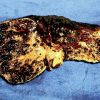 +30 +4
+30 +4A Family Ate 1 Year Old Frozen Leftovers For Breakfast. This Is What Happened To Their Organs.
-
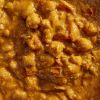 +29 +9
+29 +9The Quick Trick for Softening Canned Chickpeas for Silky-Smooth Hummus, Stews, and More
Canned chickpeas and beans are usually a bit too firm for some preparations, like dips and braises; this rapid-tenderization method using a common pantry ingredient is the perfect fix.
-
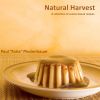 +21 +4
+21 +4NSFW Cooking isn't hard! Just use this semen cookbook
if you've ever done the deed, thrown out the evidence and thought, gee, this seems like a waste of good protein, you're not alone. Paul "Fotie" Photenhauer came to this conclusion way before you.
-
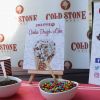 +17 +3
+17 +3Woman sues Cold Stone Creamery over lack of pistachios in pistachio ice cream
“When consumers purchase pistachio ice cream, they expect pistachios, not a concoction of processed ingredients,” Duncan’s lawsuit reads.
-
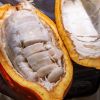 +26 +7
+26 +7Scientists Reinvent Chocolate With Secret Ingredient – It's Healthier And Less Wasteful
To make the signature flavor palatable as a sweet treat, chocolate manufacturers combine a paste made from cacao seeds with sugar. Lots and lots of sugar – often enough to rival all the other ingredients combined, in fact.
-
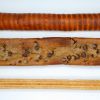 +31 +6
+31 +6I ate the Subway Footlong Cookie so you don’t have to
Subway has a new Footlong Cookie. I bought one and now it looks like a Candyland murder scene.
-
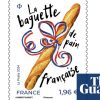 +31 +7
+31 +7French post office releases scratch-and-sniff baguette stamp
‘Bakery scent’ added via microcapsules to postage stamp celebrating ‘jewel of French culture’
-
 +24 +2
+24 +2The Hidden, Magnificent History of Chop Suey
Discrimination and mistranslation have long obscured the dish's true origins.
-
 +26 +1
+26 +1Eating The Hottest Peppers In The World For Science (okay I regret this)
2 comments by Gozzin -
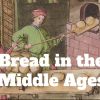 +28 +4
+28 +4Bread in the Middle Ages
Kings, knights, monks, peasants - everyone in the Middle Ages ate bread. It was also the food that caused bitter religious disputes and could make you go insane.
-
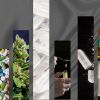 +21 +5
+21 +5Most people with coeliac disease don't know they have it. Here are the signs to look out for
Coeliac disease can have significant long-term health impacts but most people living with the condition don't know they have it. There are some simple steps to take if you think you're one of them.
-
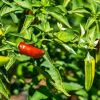 +20 +3
+20 +3The US pepper that was nearly lost
Once grown almost solely by enslaved people, the fish pepper was nearly lost forever until a chance find in a freezer revived the plant and it's now more popular than ever.
-
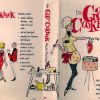 +17 +3
+17 +3Years Before Stonewall, a Chef Published the First Gay Cookbook
It was the first to be marketed to gay men.
-
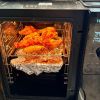 +31 +5
+31 +5I used GE's smart indoor smoker to make authentic BBQ in my kitchen, and it's $300 off right now
The Smart Indoor Smoker by GE allows barbecue enthusiasts to enjoy an authentic smoking experience in their home kitchen, just in time for the Super Bowl.
-
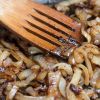 +27 +6
+27 +6Why Do Recipe Writers Lie About How Long It Takes To Caramelize Onions?
Browning onions is a matter of patience. My own patience ran out earlier this year while leafing through the New York Times food section. There, in the...
Submit a link
Start a discussion




















